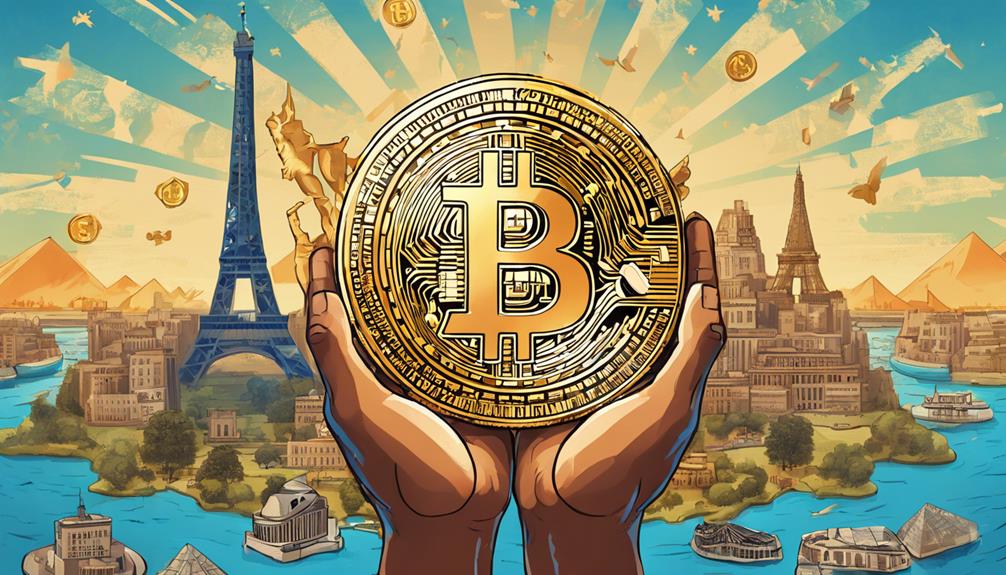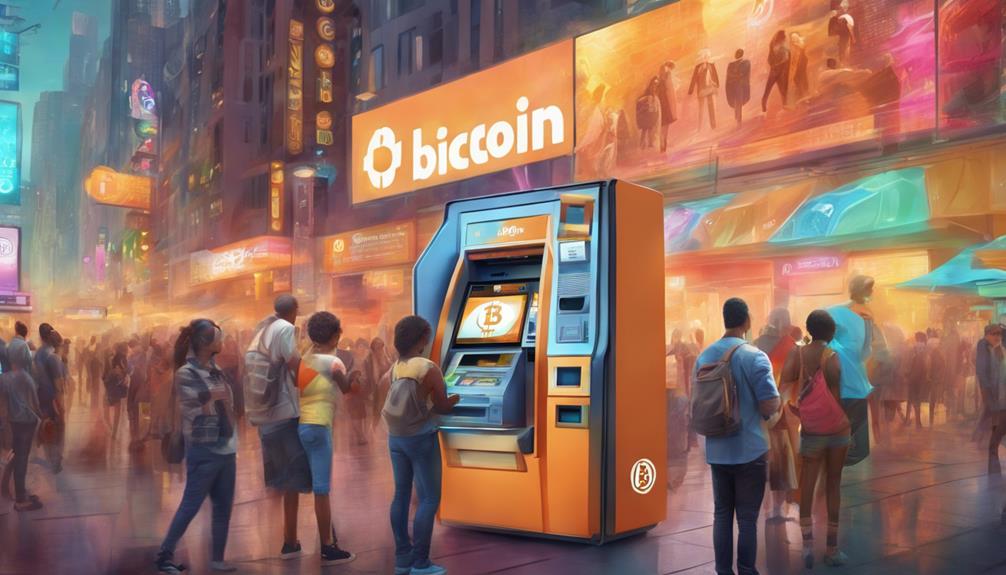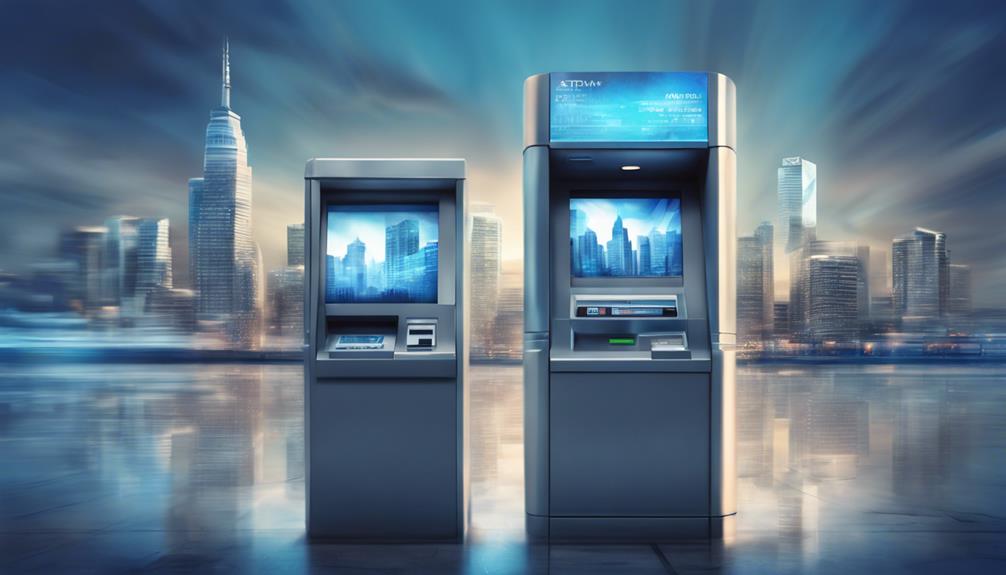Bitcoin Where Currency

As you explore the intricate world of Bitcoin, you might wonder about its place as a currency in today's global economy.
Since its emergence, Bitcoin has stirred significant debate over whether it can truly replace traditional currencies.
Its acceptance varies widely by country, influenced by differing regulatory landscapes and economic stability.
If you consider using Bitcoin, you'll need to understand how its value fluctuates widely and what that means for your financial transactions.
This exploration could alter your perception of money and its future, begging the question: does Bitcoin have the endurance to redefine our understanding of economic exchange?
Origins and Historical Evolution

In 2008, Satoshi Nakamoto, the pseudonymous inventor of Bitcoin, the first decentralized cryptocurrency, marked a revolutionary shift in digital finance.
The buzz around the new way to exchange value digitally without the usual hassle of traditional financial systems was palpable. On August 18 of that same year, Nakamoto laid the groundwork by securing the now-famous domain bitcoin.org.
A few months later, on October 31, Nakamoto shared a link to a white paper titled 'Bitcoin: A Peer-to-Peer Electronic Cash System' with a cryptography mailing list.
This document detailed a method for using a peer-to-peer network to create a system of electronic transactions without relying on trust. By January 2009, Bitcoin's software became available as open-source, inviting users to join in on what would soon become a significant part of financial history.
You might be amazed to learn that the first known commercial bitcoin transaction was for something as mundane as pizza.
On May 22, 2010, Laszlo Hanyecz made history by buying two pizzas using 10,000 bitcoins.
Initially embraced by unorthodox markets like Silk Road, Bitcoin reached places where traditional finance wouldn't venture, setting the stage for a financial revolution.
Technical Infrastructure
After exploring Bitcoin's historical emergence, let's examine its technical infrastructure. You're now stepping into the world of blockchain, the spine of this cryptocurrency.
This decentralized, distributed ledger carries the essence of community—it's sustained by individuals like you, distributed across the globe, who lend their computational power to maintain this system.
Blockchain, a digitally distributed, decentralized, public ledger, is shared among nodes in a network. Each transaction made with Bitcoin is added to a 'block' of data, which is then linked to the previous one through a process known as hashing.
Utilizing the SHA-256 hashing algorithm, the blockchain ensures each block is securely encrypted, thereby maintaining decentralization and immutability. Think of it as a puzzle that guards your transactions, where the pieces are private keys—unique to each user and nearly impossible to replicate due to the complexity of SHA-256.
Mining is the heartbeat of this structure. It's not just about creating new bitcoins but validating transactions and strengthening the network.
As a miner, you'd solve cryptographic puzzles using significant computational power to add a block to the chain. In return, you're rewarded with bitcoin, tapping into the finite pool of 21 million coins.
This intricate yet robust framework isn't just technical; it's a space where you belong, contributing to and growing within this digital ecosystem.
Global Adoption and Regulation

Governments worldwide have responded differently to Bitcoin, ranging from official adoption to outright bans.
One notable example is El Salvador, which, in a groundbreaking move in 2021, embraced Bitcoin as legal tender, allowing its citizens to use it to pay taxes or debts to the government.
On the other hand, countries like China, Bolivia, and Ecuador have banned cryptocurrencies as of 2021 due to concerns over financial stability and the potential for illegal activities.
The United States has adopted a more nuanced approach. Starting in 2013, the US Financial Crimes Enforcement Network set out regulations requiring bitcoin exchanges to register and adhere to anti-money laundering laws, aiming to maintain community safety while allowing room for exploring Bitcoin's possibilities.
This mix of adoption, skepticism, and regulation paints a complex but fascinating picture, engaging individuals globally as they navigate this evolving landscape of cryptocurrency regulations and uses.
Economic Impact and Usage
The economic impact of digital currencies, particularly Bitcoin, is profound as it shapes markets and influences financial policies worldwide.
The software facilitating Bitcoin transactions integrates into the financial ecosystem efficiently, making it a competitive payment system alongside traditional currencies.
The low transaction fees and speedy processes make it attractive, especially when buying and selling on cryptocurrency exchanges as part of a global community reshaping international money flows.
This shift away from conventional institutions towards autonomy and reduced barriers connects users to a larger movement for financial freedom and innovation, dynamically changing how economies operate.
Future Prospects and Challenges

As Bitcoin evolves, its potential for mainstream acceptance grows, yet it also encounters formidable regulatory and security challenges.
You've seen how El Salvador, the first country to adopt Bitcoin as legal tender, sparked hope that other nations might follow. This bold move could set a precedent, fostering a sense of inclusion as Bitcoin becomes a part of everyday economic activities worldwide.
Yet, with its wider acceptance, you're also witnessing increased scrutiny from governments. Some countries are pushing back, creating regulatory hurdles that could slow down Bitcoin's adoption rate.
There's also exciting technological progress that's enhancing Bitcoin's utility. The Taproot upgrade has improved how transactions and smart contracts are managed, making Bitcoin more than just digital gold—it's becoming a more versatile financial tool.
Meanwhile, the Lightning Network promises to scale up Bitcoin's transaction capacity, which could make your coffee purchases as quick and simple as using fiat currency.
But remember, as you champion Bitcoin's adoption, stay vigilant about security risks. Hacking and other vulnerabilities still pose significant threats.
Frequently Asked Questions
Where Is Bitcoin a Currency?
Bitcoin is considered a form of currency in various countries, allowing you to buy goods and services just like you would with traditional money.
Which Currency Is Bitcoin?
You're wondering about Bitcoin? It's not tied to any standard currency; it's a standalone cryptocurrency, used globally. Its unique nature lets you engage in transactions without banks or traditional constraints.
Is Bitcoin Still a Currency?
You're right to wonder if Bitcoin still counts as a currency. Its use is more as a volatile investment than everyday money, despite its recognition in places like El Salvador, where it has legal tender status. It's not straightforward.
What Currency Can You Buy Bitcoin In?
You can buy Bitcoin in various currencies including the U.S. dollar (USD), the Japanese yen (JPY), the South Korean won (KRW), the euro (EUR), and several other national currencies, depending on the exchange or platform you use.
Conclusion
You've witnessed Bitcoin's transformative journey from a novel digital token to a global currency powerhouse.
With its technical prowess and decentralized charm, Bitcoin is reshaping how you view and use money.
Launched by Satoshi Nakamoto in 2009, Bitcoin now has a market capitalization rivalling some of the world's largest economies.
As you look ahead, brace yourself for challenges in regulation and adoption, including concerns over criminal activity and environmental impact.
But also exciting opportunities for economic innovation.
The path isn't straightforward, but Bitcoin's potential to impact your financial future remains undeniable, particularly as more than 130 countries, including the United States, consider introducing their own central bank digital currencies to compete with the cryptocurrency boom.
Stay informed and ready to navigate the evolving landscape of digital currency.





